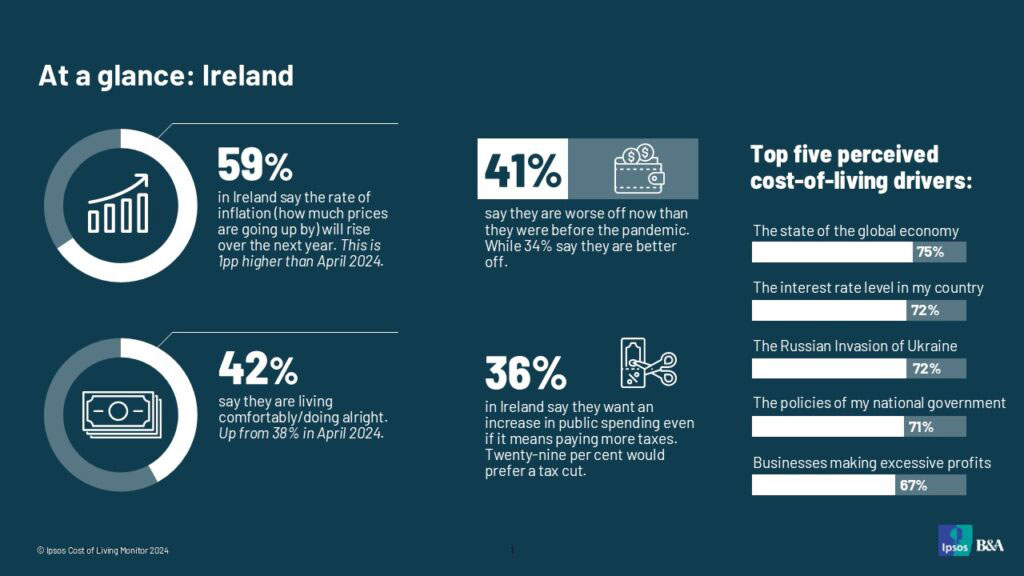 With the Irish electorate going to the polls today and the cost of living likely to impact on voter sentiment, 59% of adults believe that the cost of living is only going to get worse with more inflation expected over the next 12 months.
With the Irish electorate going to the polls today and the cost of living likely to impact on voter sentiment, 59% of adults believe that the cost of living is only going to get worse with more inflation expected over the next 12 months.
In addition, 41% believe they are worse off now than they were before the pandemic although 42% say they are living comfortably/doing ok, according to the latest Ipsos Cost of Living Monitor, a 32-country study (including Ireland) which tracks how people around the world feel about their finances during the so-called polycrisis. As part of the research, Ipsos interviewed 22,720 people in these 32 countries.
Globally, there is a strong expectation that prices will rise next year. Two-thirds (65%) think the rate of inflation will increase in their country in the next 12 months. This figure is up 7pp since April and this is the highest figure recorded since November 2022. In Great Britain the expectation inflation will rise is up 23pp since April.

“People more likely to feel worse off than four years ago. Thirty-seven per cent across 32 countries say they are worse off than before the pandemic, and this figure rises to 43% for G7 countries. Ipsos’ Consumer Confidence Index tracking shows a similar level of caution, with little improvement in outlook over time,” the Ipsos research shows.
More see immigration as a driver of inflation. The proportion who choose immigration as a cause of inflation is up 4pp since April to 56%. “People in Asia, Canada and Great Britain are more likely to see immigration as a factor than earlier this year,” the report points out.
“The gap between the wealthy and the rest is growing. Those on a low and middle income are more likely to say they are finding it difficult compared to earlier this year. Indeed, over the last two years the gap in outlook between high income consumers and everyone else has grown,” it adds.
Overall, more people want tax cuts than more public spending, says Ipsos. “Across 32 countries people say they prefer tax cuts even if it meant less money for public services than spending more and paying greater taxes. However, this masks big differences across countries. Türkiye, Romania and the Philippines back tax cuts, while Indonesia and Sweden want better public services.”

From an Irish perspective, Paul Moran, associate director at Ipsos B&A notes: “This study reveals a mixed picture of the Irish public’s financial well-being. While a significant portion (41%) feel worse off financially since the pandemic, a similar number (42%) report living comfortably. This contrast indicates an uneven impact of recent economic shifts. Looking ahead, there’s a widespread expectation of rising inflation, with global factors perceived as the primary drivers of cost-of-living increases. Perhaps most significantly as government formation gets underway in the coming days, over a third of adults express a willingness to pay higher taxes to support increased public spending.”
To download a full copy of the report click HERE






















